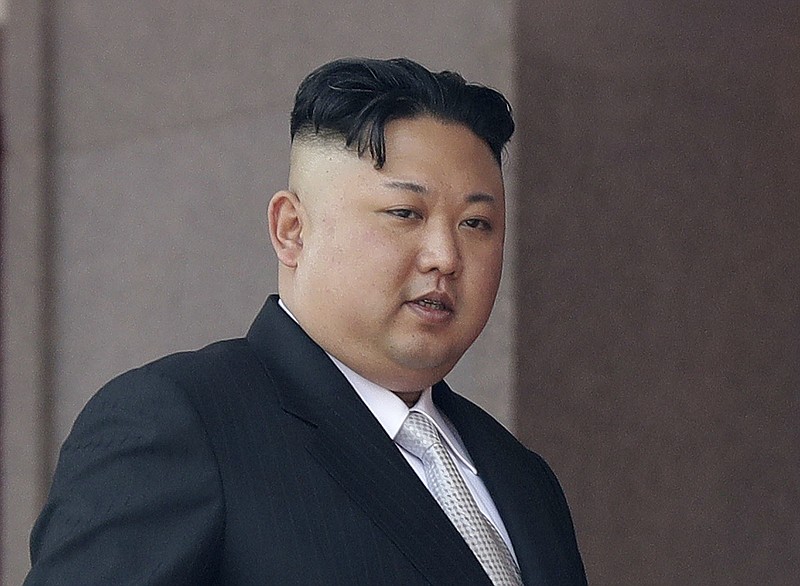SEOUL, South Korea - Some stories have to be experienced to fully grasp - the Korea crisis is one of them. I arrived in Seoul on the evening of May 28. As I was dressing for breakfast the next morning, I was jarred by a news alert ringing on my phone: North Korea had just fired a short-range ballistic missile that had landed in the sea off its east coast.
I waited for the sirens to tell us to go to the hotel shelter, as happened when I was in Israel during a Hamas rocket attack. But there were no sirens. Nothing. The breakfast buffet was packed. The mood was: Another North Korean missile test? Oh, pay no attention to our crazy cousins.
A few hours after the missile test, two U.S. B-1B Lancer strategic bombers out of Guam flew right up to the North's border on what North Korea called "a nuclear bomb dropping drill." No matter. The South Korean stock market didn't flinch.
I interviewed a group of South Korean college students at the Asan Institute for Policy Studies, and here's what some said: "The fear has been diluted - as time goes by you just get used to it." "When I went to the U.S. I freaked out (over) why people there care more about North Korea than me."
I realized that America is now the odd man out in this drama. Why? Because China and South Korea have one thing in common: The thing they fear most is not a North Korean nuclear missile blowing them up. It's North Korea either blowing itself up - economically collapsing under the weight of sanctions - or being blown up by America.
That would spill refugees and fissile material into China and South Korea, presenting both with a huge cleanup bill and China with a possible united Korea with a nuclear weapon next door.
The U.S. - by contrast - now fears North Korea blowing us up, or at least Los Angeles. It would not be an exaggeration to say that Washington fears North Korea more than ever, while China and South Korea fear a unilateral U.S. strike on North Korea more than ever.
Or, as Rob Litwak, the Wilson Center Korea arms control expert, described it: Seoul's fear that Donald Trump could draw it into a catastrophic conflict on the Korean Peninsula "brings to mind Charles de Gaulle's admonition during the Cuban missile crisis that being a U.S. ally ran the risk of 'annihilation without representation.'"
And that's why the U.S. has dispatched to South Korea Terminal High Altitude Area Defense (THAAD) antimissile batteries. But the new South Korean president is delaying their full deployment, fearing it will provoke the North or alienate China.
North Korea gets 95 percent of its oil from China. Beijing could shut down the North's economy overnight by shutting off that oil. But it hasn't. It has suspended purchases of North Korean coal, hurting Pyongyang financially, but not enough to stop missile testing. For now, it appears that China will do just enough to keep Trump at bay - by keeping North Korea from putting the last screws on a nuclear missile that can hit the U.S. - but never enough to collapse the regime or definitively end its nuclear program.
What about diplomacy? For now, North Korea shows no willingness to trade its nuclear arsenal for guarantees that the U.S. will not pursue regime change, and Trump is not going to give such guarantees without total denuclearization.
In sum, China and South Korea don't dare starve the North for fear it could collapse. They don't dare shoot it for fear it could shoot back. They and the Americans don't dare negotiate with Kim for fear that they will end up blessing his nukes - and because they don't trust him to keep any deal. And they don't dare ignore him, because he keeps getting stronger.
So we all wait - for something.
Indeed, the whole situation reminds me of the medieval fable of the criminal hauled before the king to plead for his life and successfully does so by promising that if the king spared his life for a year he could teach the king's favorite horse to sing.
When the criminal got back to his cell, his cellmate scoffed at him: You could never teach the king's horse to sing if you had a lifetime. And the man said: "No matter. I have a year now that I didn't have before. And a lot of things can happen in a year. The king might die. The horse might die. I might die. And, who knows? Maybe the horse will sing."
And that is our North Korea policy. Waiting for something to solve this insoluble problem. Waiting for a horse to sing.
